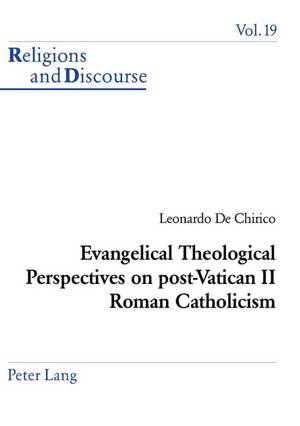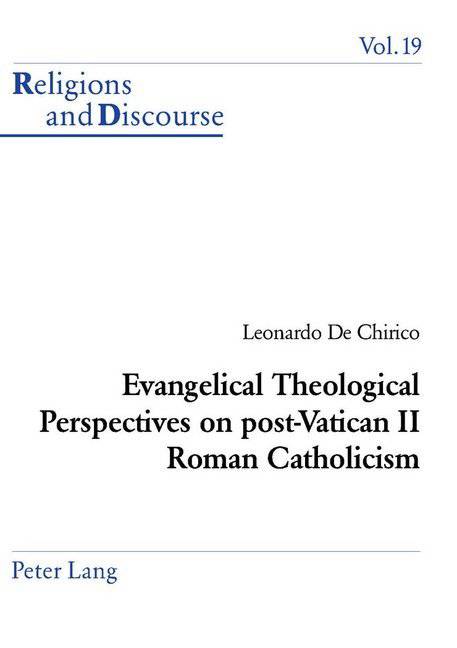
- Afhalen na 1 uur in een winkel met voorraad
- Gratis thuislevering in België vanaf € 30
- Ruim aanbod met 7 miljoen producten
- Afhalen na 1 uur in een winkel met voorraad
- Gratis thuislevering in België vanaf € 30
- Ruim aanbod met 7 miljoen producten
Zoeken
Evangelical Theological Perspectives on post-Vatican II Roman Catholicism
Leonardo De Chirico
€ 78,95
+ 157 punten
Omschrijving
The Second Vatican Council (1962-1965) has forced Evangelical theology to rethink its own perception and analysis of Roman Catholicism. Many Evangelical theologians have attempted to grapple with the new Roman Catholic outlook and the ecumenical challenges it brings. After describing the theological contours of Evangelicalism, the book critically surveys the works on Roman Catholicism by Gerrit Berkouwer, Cornelius Van Til, David Wells, Donald Bloesch, Herbert Carson, John Stott, and two on-going international dialogues between Evangelicals and Catholics. The Evangelical appraisal of Roman Catholicism has in general suffered from a lack of systemic awareness in dealing with it. The prevailing approach has been marked by an interpretative atomism, and the last two chapters propose the formulation of an Evangelical systemic analysis. First, by supporting the feasibility of the category of system as applied to Roman Catholicism, thus developing the basic theological hermeneutics proposed by Abraham Kuyper. Second, by indicating in the Roman Catholic articulations of the relationship between nature and grace and in the ecclesiological self-understanding of the Roman Church the two main theological foci of the system.
Specificaties
Betrokkenen
- Auteur(s):
- Uitgeverij:
Inhoud
- Aantal bladzijden:
- 342
- Taal:
- Engels
- Reeks:
- Reeksnummer:
- nr. 19
Eigenschappen
- Productcode (EAN):
- 9783039101450
- Verschijningsdatum:
- 19/11/2003
- Uitvoering:
- Paperback
- Formaat:
- Trade paperback (VS)
- Afmetingen:
- 152 mm x 229 mm
- Gewicht:
- 458 g

Alleen bij Standaard Boekhandel
+ 157 punten op je klantenkaart van Standaard Boekhandel
Beoordelingen
We publiceren alleen reviews die voldoen aan de voorwaarden voor reviews. Bekijk onze voorwaarden voor reviews.











